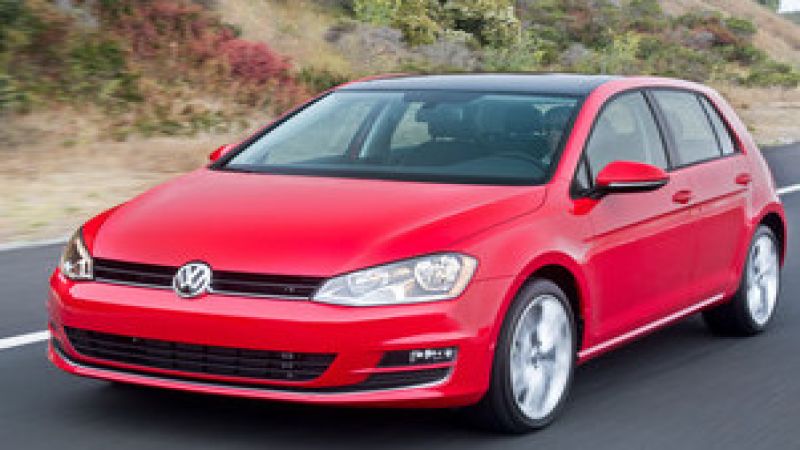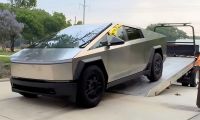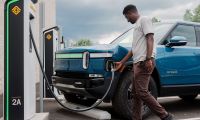In the latest attempt to derail the Volkswagen Dieselgate class-action suit settlement, the world’s largest electric car charging network wants the judge to order changes to the already-negotiated agreement. The reason is that it believes the agreement threatens its survival.
Instead of thinking of the 475,000 VW diesel owners whose lives have been directly impacted by the diesel emissions scandal, ChargePoint, Inc. wants the judge to stop things so that already-negotiated agreement can be changed. The charging firm said in a court filing Tuesday that the $2 billion fund would let VW “drown out all other participants in the ZEV infrastructure market through enormous spending, made at its unfettered discretion, that is untethered to the normal constraints and financial metrics by which all other market participants must operate.”
Major Network Operator
ChargePoint’s claim was made in a Reuters story that appeared on the run-up to the Oct. 18 hearing in the San Francisco U.S. District courtroom of Judge Charles Breyer, who has been overseeing the class-action civil settlement phase of the Dieselgate scandal. ChargePoint operates a network of more than 30,000 public charging stations.
Part of the $16.5 billion civil settlement is a Volkswagen investment that would improve and advance zero-emissions vehicles (ZEV) – electrics. The specific plan earmarks $1.2 billion for nationwide spending, adding $800 million for California.
In its filing late Tuesday, ChargePoint claimed that letting VW “flood a competitive market with $2 billion in goods threatens the survival of the current participants in that market.” The settlement, though, requires VW to fund infrastructure improvements that can be used by electric vehicles made by all manufacturers.
This is filing is the second time in two weeks ChargePoint has filed a challenge. The Justice Department, one of the participants in the marathon negotiations leading up to the Dieselgate class-action suit settlement, rejected the first try on Sept. 30. Justice added it believes that ZEV infrastructure would increase in the coming years. That increase will “allow for continuing competition in these emerging markets.”
Undeterred by the Justice rejection, ChargePoint filed papers in court seeking to impose its views on the already-negotiated settlement. In its latest challenge, the charging company was fearful that VW could “drive out all competition” by offering below-market-rate charging services. Its alternative, which likely would force a reopening of parts of the already-settled class-action settlement, would have Judge Breyer appoint an independent trustee who would oversee the ZEV fund. Or, it suggested, the judge could issue an order barring VW from offering charging services at below-market rates.
Dieselgate Class-Action Suit Challenge
The portion of the Dieselgate class-action lawsuit settlement that ChargePoint is again challenging provides for part of the environmental mitigation plan that followed VW’s admission that it had planted and used emissions cheating software on 475,000 U.S. vehicles powered by 2.0-liter diesel between 2009 and 2015. The software let some vehicles emit up to 40 times the allowable limits of nitrogen oxide emissions, a major diesel combustion component.
ChargePoint’s new attempt at reopening the settlement is defensive. It raised more than $164 million from investors. And, some 244,000 drivers have registered on its charging network, including 125,000-plus in California. It is apparently fearful of VW's competitive power. Its new filing seems to come at the expense of those awaiting payments from the buyback plan – the centerpiece of the settlement. They have been waiting for some time and would be delayed longer by CharePoint's latest gambit, if it succeeds.
Set as google preferred source












Comments
I don't read a compelling
Permalink
I don't read a compelling argument here for a reversal of the court's settlement mandate, nor a case for modifying the contingencies of the settlement. As to ChargePoints claim of unfair business advantage: Isn't the $ 2 Billion earmarked for EV development, currently V.W.s cap funds? Marc,what are your thoughts here? It may further be noted that the majority of charging networks, public and private, would not be in place without federal T.A.R.P. funds.
I agree with you completely.
Permalink
I agree with you completely. ChargePoint does not make a compelling case at all. The court is under no constraints as to whether they survive or not with VW's competition due to the settlement. All the court cares about is that the funds are administered according to the plans that have already been worked out. That, however, doesn't prevent the folks at ChargePoint from filing specious, time-wasting appeals either through the Justice Department or directly with the court itself. Why ChargePoint believes it has a case is beyond me.
It appears they are trying to get it on the record so they can launch an appeal after the final conferences are held next week. I believe they think they can win on appeal, but I have no proof that this is true. It is only my supposition.
Thank you Marc for your
Permalink
In reply to I agree with you completely. by Marc Stern
Thank you Marc for your thought provoking response. looking to the news, several environmental groups and brand plates now volley to take a piece of the pie. One proposition centers around the replacement of 75,000 high particulate emitting(commercial) diesel engines being replaced by "clean" diesel technology. It will be interesting to see where all of this lands.
Hopefully, it will land
Permalink
Hopefully, it will land quickly so that the 475,000 VW owners, who will be held hostage to all of their shenanigan if the folks like ChargePoint have their way, will get their buyout money and can move on. I am not at all very hopeful that it will happen as settlements have ways of being delayed for a long time as the others look for their "rightful cut" -- though they may not have one -- and the people that will end up getting hurt in the end will be the VW owners the class-action suit was meant to help.